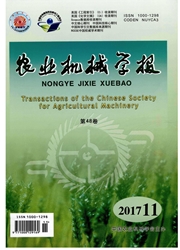

 中文摘要:
中文摘要:
再生水灌溉已成为世界范围内缓解水资源供需矛盾的有效手段。再生水中含有一定量的有害物质可能带来农田生态环境的污染风险,不合理再生水灌溉引起的系统安全和环境污染风险成为限制其应用的主要因素。以实现系统稳定、环境持续和调控有效为目标,深入开展相关理论和技术问题研究是保证再生水高效安全灌溉的关键。在系统总结国内外研究成果的基础上,分析了再生水灌溉对灌水器、灌溉系统、农田环境以及农产品等不同尺度介质的影响,阐释了再生水中的养分、盐分、微生物和典型污染物等的行为特征及相互作用机制。需要进一步研究再生水灌溉对系统性能影响的微观机制与宏观特征、对环境影响的动力学过程、对养分吸收利用及转化过程的影响以及高效安全调控机制等关键理论和技术,为实现再生水的高效安全灌溉提供参考。
 英文摘要:
英文摘要:
The use of sewage effluent subjected to proper treatment for agricultural irrigation has been increasingly considered as a supplemental source of freshwater in many countries where a shortage of potable water is current reality. However, concern exists over the pollution risk due to the toxic accumulation from sewage effluent,which is the main restraint on the application of sewage effluent irrigation. Extensive researches on system stability,environmental sustainability,and efficient control are highly necessary to ensure the efficient and safe use of sewage effluent for agricultural irrigation. The effects of sewage effluent application on drip emitters,irrigation system,environments and agricultural products were reviewed. The behaviors and interaction between nutrients,salts,microorganisms and typical pollutants were summarized. Several theoretical and technical issues that need to be further studied,including the micro mechanism and macro behaviors of the influences of sewage application on irrigation system performance, the dynamics process of environmental changes imposed by sewage irrigation,the effects of sewage application on nutrient uptake and utilization,and efficiently safe control mechanisms of sewage irrigation,were prospected. Expected researches on these issues can add new knowledge to the regulation theory of water,nutrients and salts for irrigation and it will be a contribution to enhancing the efficiency and safty of use of sewage effluent for agricultural irrigation.
 同期刊论文项目
同期刊论文项目
 同项目期刊论文
同项目期刊论文
 期刊信息
期刊信息
